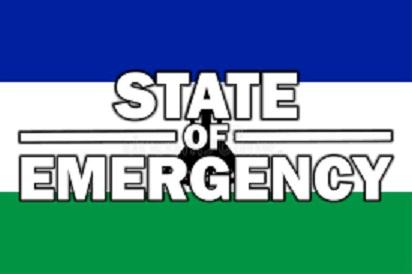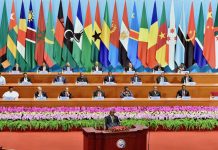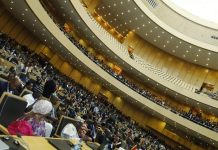Africa-Press – Lesotho. The bills passed are the Eleventh Amendment to the Constitution Bill 2022 and National Assembly Electoral Amendment Act. News24 spoke to a leading legal expert in Lesotho, Mokitimi Ts’osane from the Human Rights and Access to Justice Department, Transformation Resource Centre, about the decision’s legality.
What is the raging legal debate There is now a debate over whether Parliament’s failure to pass a bill before its dissolution is an emergency.
The discussions extend to whether, in the circumstances, a declaration of a state of emergency as a precursor to recalling Parliament does not amount to a legal pretext of an essentially political act in abuse of emergency powers. Textualism or pragmaticism
Since the dissolution of Parliament on 14 July 2022, pending elections on 7 October 2022, legal scholars, jurists, lawyers, and political actors were confronted with a serious legal dilemma on the constitutionality of recalling Parliament because of a state of emergency.
At least two strong arguments could be made from well-crafted lawyerly interpretations from either side of the seriously disputed constitutional question – textualism or pragmaticism.
In these circumstances, the Council of State was duty bound either to advise the king based on the linguistic text of the Constitution or the alternative pragmatic interpretation weighing political, legal, economic, and social consequences on the quest to foster stability and promote the general public good.
Constitutional provision If after the dissolution of Parliament and before the holding of a general election of members of the National Assembly, the king is advised by the Council of State that, owing to a state of war or of a state of emergency in Lesotho, it is necessary to recall Parliament.
The king shall recall a Parliament that has been dissolved and that Parliament shall be deemed to be the Parliament for the time being. But the general election of members of the National Assembly shall proceed and the recalled Parliament shall, if not sooner dissolved, stand dissolved on the day immediately preceding the day fixed for such general election or, if more than one such day, the first of such days.
Plain meaning In terms of the text of the Constitution, a conditional recalling of Parliament can only be assertable provided there exists, in reality, the truth of its antecedent being either state of war or state of emergency making a relevant difference to that of their consequent.
The validity of recalling Parliament is predicated on the existence of either a war or an emergency for which a state of emergency may be declared in between the dissolution of Parliament and the holding of general elections.
Such that there really exists an emergency for which a statement of emergency may be declared in between the two events then it justifies recalling the dissolved Parliament.
The text of the Constitution limits the recalling of Parliament conditional only to the emergence of the two events within a specific period and nothing else.
Therefore, where there is no emergence of an emergency for which a state of emergency can be declared during the period between the dissolution of Parliament and the holding of elections, then recalling Parliament is flawed and cannot be validated or premised on a non-existent state of emergency.
For More News And Analysis About Lesotho Follow Africa-Press






